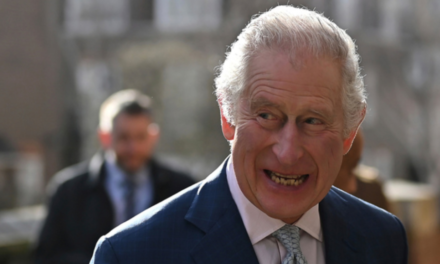The government relied upon psychological experts in 2020 to advise strategies to deploy “non-consensual emotionally discomforting techniques” on the people of the UK which were more often than not in pursuit of their nefarious objectives. There has been a rising awareness of the techniques and strategies used that aimed to promote fear, shame and scapegoating to ensure mass compliance of damaging and ethically dubious interventions and who was responsible for them. Psychologists and behavioural scientists who are implicated as being significantly responsible for advising the strategies however, appear to be denying their involvement in such a process, according to Hart (source).
NUDGE DENIALISM: Why are the state’s psychological experts distancing themselves from behavioural science?
Is brainwashing no longer in vogue?
By Hart.

The state’s reliance on behavioural science strategies – ‘nudges’ – to facilitate the public’s compliance with covid restrictions has been widely documented. The many psychologists and behavioural scientists advising the government during the covid event (such as those in the SAGE subgroup, SPI-B, and the Behavioural Insight Team, BIT ) have, reasonably, been assumed to hold a significant degree of responsibility for using these methods of persuasion in communication campaigns.
Intriguingly, however, several prominent psychological specialists within these advisory groups have attempted to distance themselves from involvement in nudging, not only from the specific use of fear inflation but also – more recently – from being associated with all forms of this type of furtive persuasion. So what is the evidence that the state’s psychological experts are denying responsibility for the deployment of behavioural science strategies, and what could be motivating these claims?
Contrary to the evidence of the published outputs of the SPI-B and BIT, a series of behavioural experts have claimed zero responsibility for scaring people (the ‘affect’ nudge) into compliance with the covid-19 restrictions and subsequent vaccine rollout. In March 2022, Professor Ann John (a SPI-B co-chair) told a Government’s Science & Technology Committee:
‘We never advised on upping the level of fear. I think it was presented as part of the evidence base… we absolutely advised that fear does not work’.
In March 2023, four members of the SPI-B (Professors Reicher, Michie, Drury, and West) wrote an opinion piece for the British Medical Journal in which they claimed that politicians, not they, were responsible for fear inflation during the covid event:
‘When Hancock & Case advocated scare tactics they were going against the scientific advice they had been given’.
Reicher repeated his innocence plea when he appeared before the Covid-19 Inquiry in January 2024, when he said:
‘One of the criticisms made of SPI-B and of behavioural science in general is that we wanted to use fear to frighten people into adherence, but there is a huge difference between making people realistically aware of threat, so they can do something about it, and fear …So if you give people realistic risk information combined with information about how to mitigate it, actually it doesn’t increase fear, if anything it decreases fear because it empowers people.’
So in Reicher’s world, the multitude of people cowering in their own homes during the covid event were ‘empowered’ rather than fear ridden (see this previous HART article for a more detailed critique of this argument).
Professor David Halpern (the BIT chief) stated in his May 2023 witness statement for the Covid-19 Inquiry:
‘Frustratingly – given our internal advice, and that we didn’t have anything to do with campaigns such as “Stay Alert” (or “Look into her eyes”) BIT was later blamed for encouraging HMG to pursue a fear-based campaign’.
The pleas of blamelessness were repeated by Professor James Rubin (another SPI-B co-chair) in his October 2023 testimony to the Covid-19 Inquiry. When asked directly about his group’s involvement in scaremongering, Rubin claims that they ‘argued against it on multiple occasions’ and also sent a series of internal papers to senior Government officials discouraging the use of fear as a means of promoting compliance.
These serial denials of culpability for the widespread use of scare tactics during the covid event are unconvincing. Although these prominent behavioural scientists may not have been directly involved in the production of the ‘Look them in the eyes’ campaign (arguably, the most disturbing and ethically dubious of all the covid messaging), there are sound reasons to question the veracity of their assertions of innocence: for example, the documented outputs of these high-profile nudgers (collectively, as part of SPI-B and BIT, and – in some instances – individually) have sanctioned the use of fear as a method of promoting compliance; some SPI-B members told investigative journalist, Laura Dodsworth, that the group was not averse to using scare tactics on the British people (A State of Fear, p94); and, despite a highly visible media presence, they did not publicly criticise the covid fearmongering campaign.
Two influential behavioural scientists have taken these denials a stage further by striving to also distance themselves from the entire process of nudging. When asked at the Covid-Inquiry whether the SPI-B was a ‘Nudge Unit’, Professor Rubin replied:
‘Instead of nudging, SPI-B’s work focused on providing support to people to help them to engage with the measures that were openly recommended by public health experts … SPI-B didn’t consider those (i.e. nudge) options, or rather it wasn’t a focus for us … SPI-B looked at the science of communication whereas these [other teams] were working on the operationalisation of that science’.
Similarly – during his appearance at the Scottish leg of the Covid-19 Inquiry – Professor Reicher said,
‘I’ve never been quite clear what “behavioural scientist” means … I’m perfectly happy with being called a psychologist and, more specifically, a social psychologist.’
Later in his interview Reicher offers further details of how he perceived his role as an advisor during the covid event:
‘It wasn’t us making people do anything, it wasn’t us telling people to do anything, it was how can we engage with the public and jointly do something … The key factor in adherence is not your individual risk, it’s the collective risk, it’s the risk to the community. So effecting a sense of community increases adherence. And all my interventions in a sense were about how do you achieve that, how do you scaffold that, how do you support that, how do you create that sense of community.’
It is informative to speculate as to the reasons why these two core participants in a group (SPI-B) – the primary remit of which was to enhance the effectiveness of government communications in promoting compliance with covid diktats – should now be striving to avoid the label of ‘nudger’. Three possibilities come to mind.
First, it could be construed as an attempt to suggest their academic superiority over other behaviour-change practitioners, a kind of intellectual elitism; a sense that we provide the overarching theoretical frameworks that enable the foot soldiers (such as those in the BIT, aka ‘Nudge Unit’) to implement the corresponding interventions. Unsurprisingly, Halpern (the BIT chief) appears to be at odds with this hierarchical differentiation, as indicated by his blunt comments in his Inquiry witness statement, where he says that the SPI-B group was ‘prone to producing vague & not always well-evidenced papers that policymakers & SAGE were underwhelmed by … … SPI-B members just stuck with the generalities of the existing behavioural literature .. … effective applied behavioural science cannot be a spectator sport’.
Of course, even if this claim by some behavioural scientists to occupy the higher intellectual ground could be justified, it would not deflect responsibility for the pervasive scaring, shaming and scapegoating of the British people witnessed throughout the covid event; for instance, equating adherence (to restrictions) with virtue – even when couched in euphemisms such as ‘platforming a sense of community’ – still constitutes the promotion of covert psychological manipulation, in this case in the form of an ‘ego’ nudge.
Second, the growing ethical concerns surrounding the state’s use of nudges may render it desirable to distance oneself from this form of psychological persuasion. The rising awareness that a government’s strategic and non-consensual deployment of emotionally discomforting techniques on its citizens, often in pursuit of dubious goals, is highly questionable might incentivise the state’s communication specialists to deny involvement in such a process.
Third, these prominent government advisors will be aware of empirical evidence suggesting that nudging is often perceived in a negative light. Thus, Sanders et al. (2021) examined the public and media discourse around the Government’s deployment of behavioural science in early 2020 and found that the term ‘nudge’ seems to ‘stir divisiveness’. Furthermore, these researchers discovered that expert groups were perceived differently:
‘We found two distinct clusters of actors and concepts in the behavioural science to be received differentially by both the media and public: BIT, Dr. David Halpern and “nudge” were viewed as embedded with the lockdown policy, coupled with negative perceptions; on the other hand, Prof. Susan Michie, Prof. Steven Reicher, and the SPI-B were perceived to be speaking out against these policies.’
The irony here, of course, is that this more favourably viewed group of influencers would have been ‘speaking out’ in support of earlier and longer lockdowns, advocating for more top-down authoritarianism and control. Nevertheless, it is conceivable that a desire to avoid the negative perceptions associated with being categorised as a nudger might fuel a desire to distance oneself from this label.
In conclusion, these attempts by specialist government advisors to deny that they endorsed the use of behavioural science strategies on the British people sound rather hollow. Promoting theoretical principles that – directly or indirectly – encourage the deployment of fear, shame and scapegoating to lever the compliance of citizens, implicates them as holding significant responsibility for these often damaging and ethically dubious interventions.
Nudge methods of covert persuasion are now ubiquitous across all areas of government activity, yet the plentiful supply of experts offering psychological advice within the government infrastructure seem incapable, or unwilling, to own or challenge this unacceptable state of affairs.
Bitchute: https://www.bitchute.com/channel/YBM3rvf5ydDM/
Telegram: https://t.me/Hopegirl587
EMF Protection Products: www.ftwproject.com
QEG Clean Energy Academy: www.cleanenergyacademy.com
Forbidden Tech Book: www.forbiddentech.website


![FEMA, DEWS & KILL CITIES — Deb Tavares [Part 1]](https://www.hopegirlblog.com/wp-content/uploads/2023/09/part-1.png)










